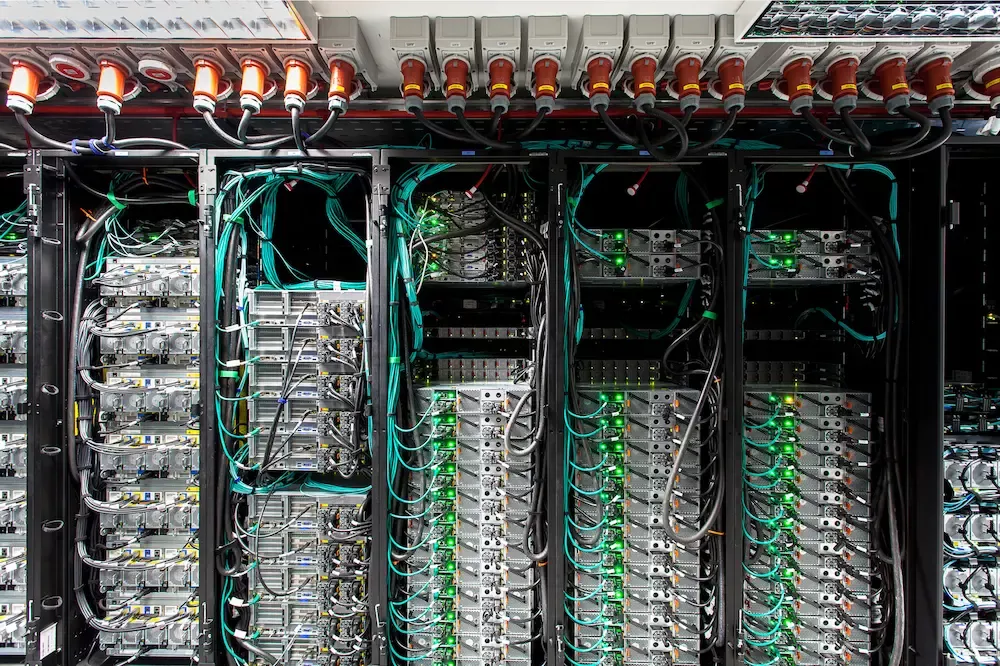Tomorrow’s High Performance Computing Systems Must Perform for the Planet
Scott Tease, Vice President & General Manager of Artificial Intelligence and HPC Worldwide

At ISC 2024, the theme of “Reinventing HPC” underscores the evolution of High-Performance Computing against the backdrop of broad AI advancements. Businesses across all industries face ever-increasing performance requirements from their computing systems to enable Machine Learning and Large Language Model applications. At the same time, companies face unprecedented scrutiny and attention towards maintaining a green footprint. Enterprises today must recognize sustainable High-Performance Computing as being the core engine that makes it possible to responsibly maximize AI’s potential.
As more businesses look to harness the capabilities presented by AI and HPC, it is critical to ensure sustainability is at the forefront of the design and performance of computing systems. AI and HPC capabilities are being increasingly implemented in a complementary manner, unlocking data-driven insights, accelerated outcomes, and advanced use cases. Lenovo has been enabling efficient and high-powered computing for over a decade, having pioneered Lenovo Neptune™ liquid cooling technology. Lenovo’s direct water-cooling solution uses warm water to cool nearly every component in the systems without the need for air moving devices inside the server. This water-cooled system enables customers to realize up to a 40% reduction in power consumption and a 3.5x improvement in thermal efficiencies compared to traditional air-cooled systems. This trademarked method keeps all the server components cool, reducing the need for traditional power-hungry air conditioning systems in data center.
Industry Partnerships Power Innovation
Lenovo is working with key partners across the industry to deliver powerful and sustainable HPC systems, purpose-built for AI. At NVIDIA’s recent GTC event, Lenovo and NVIDIA released a new ThinkSystem SR780a server which comes equipped with Lenovo Neptune technology, powering an ultra-efficient power usage effectiveness (PUE) of 1.1 for the device. PUE compares data center energy usage to the overall energy used by the computing equipment. With direct water-cooling, the ThinkSystem SR780a delivers heightened power efficiency without sacrificing performance. Recently, Lenovo expanded its partnership with AMD by announcing three new purpose-built AI systems, designed for the most compute-demanding AI workloads, inclusive of GenAI and Large Language Models. Among these new solutions is Lenovo’s ThinkAgile MX455 V3, which offers double the CPU performance and half the power consumption compared to the closest competing offerings.
In addition to offering leading performance and sustainability capabilities, Lenovo also makes its entire portfolio of AI-built systems accessible for all enterprises by offering them through Lenovo TruScale, Lenovo’s pay-as-you-go operations model designed to scale for each business’ needs in an efficient manner.
Advanced Customer Use Cases
Lenovo’s High-Performance Computing advancements present greater opportunities for customers to make innovative advancements. In Italy, the Euro-Mediterranean Center on Climate Change (CMCC) announced a renewal of its collaboration with Lenovo for the installation of a powerful new HPC system ‘Cassandra’ that will support climate change research by providing increased processing capabilities and optimizing energy use for the operation of the high-capacity computing infrastructure. On the new supercomputer, climate simulation models of the earth system, the ocean, both global and regional seasonal forecasting systems, and AI-based climate change applications will be executed.
Following on from an announcement earlier this year, Lenovo has started building a new HPC cluster with Germany’s University of Paderborn, in which a significant portion of the computing system will be made available for nationwide research as part of the National High Performance Computing (NHR) Alliance. The research performed with this HPC cluster will be focused on atomic simulations, among other use cases.
Donostia International Physics Center in Spain required an increase in capacity as well as a unique design for cooling in their limited datacenter footprint. They chose Lenovo solutions, including Neptune cooling, to power the new ‘Hyperion’ supercomputer, which aims to answer humanity’s most complex questions. Topics explored with the Hyperion supercomputer include the formation of galaxies, the behavior of new materials, developments in quantum technologies, and computational chemistry, among others. Equipped with 60 Lenovo ThinkSystem nodes as part of the HPC cluster, the Hyperion supercomputer runs three times faster on average than prior systems.
Leadership in Sustainable HPC
Including 13 newly listed HPC solutions, Lenovo continues to be the leading provider of Supercomputers with nearly a third of the systems on the TOP500 list built on Lenovo technology. This means that one out of every three supercomputer systems run on Lenovo, deployed in 21 markets worldwide. With the highest ranked x86 hosted system, and 2 supercomputers listed within the new Green 500 top 10, Lenovo remains a leading vendor in energy efficient HPC solutions across the world.
Lenovo’s newest HPC and AI Global Innovation Centre, unveiled in October 2023, operates on-site at the in-house European manufacturing facility in Budapest, Hungary. In April, new solar panels were unveiled to enable 100% of the HPC workloads to run entirely on renewable energy during customer testing phases. The completed installation, now totaling 5,072 solar panels across two buildings, form part of an ambitious global plan to reduce Lenovo’s Scope 2 emissions by expanding the use of solar energy worldwide.
Businesses face an unprecedented need for accelerated computing power and Lenovo is steadfastly committed to delivering continued business performance improvements while improving environmental sustainability. As we focus on building HPC solutions for a more sustainable future, customers have unlimited possibilities with our new systems while still doing what is right for the planet.

